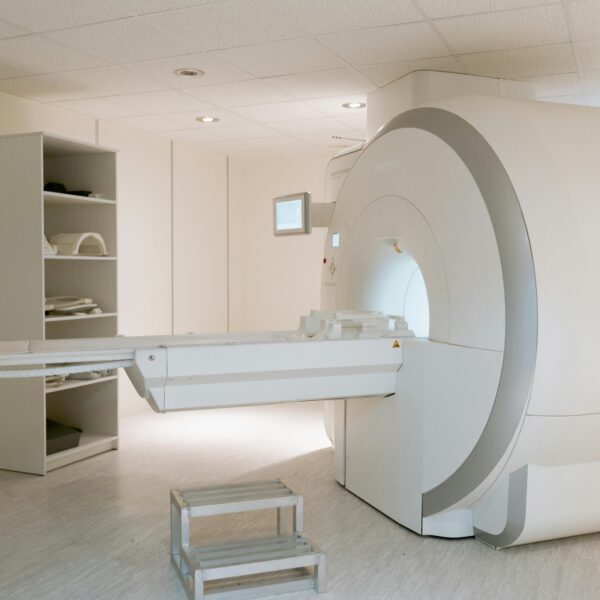As we get closer to Thanksgiving, we find that there has been a lot to be thankful for in 2021. The last two years have not been particularly easy for the world as a whole, but this year has seen some medical breakthroughs that could set us on a positive path for the coming years.
We are always glad when there is too much good news to cover in one article, but we still want to share as much as possible with you, so take a look at our six top healthcare stories we are thankful for in 2021.
HPV Vaccine Reduced Cervical Cancer Rates by 87% in Women
The human papillomavirus (HPV) vaccine was first introduced in 2006. With time, multiple generations of the vaccine have been developed and administered to boys and girls from 12 to 18 years of age. Now, as the early recipients of the shot are coming to age where cervical cancer is likely to start developing, we are seeing exactly how effective the HPV vaccine has been.
The research group following up on the outcome of this vaccination came back with great projections. “The human papillomavirus (HPV) vaccine reduces cervical cancer rates by 87% in women who were offered the jab between the ages of 12-13… 62% in women offered vaccination between the ages of 14-16, and 34% in women aged of 16-18 when they were offered the [shot]“.
Another way to see it is that the HPV vaccine was noted to have prevented around 450 cervical cancers and around 17,200 pre-cancers by the middle of 2019.
Patch Inspired by Cactus Eliminates Need for Diabetics to Prick Skin for Blood, Collects Sweat Instead
A finger prick is never particularly fun, so a research team led by Professor Kilwon Cho and Ph.D candidate Jonghyun Son of POSTECH’s Department of Chemical Engineering have set their sights on finding alternatives.
Having found inspiration in a cactus, of all things, this team has created a patch that can collect body fluids for bioanalysis purely from sweat, meaning no more skin pricks. It is used as a wearable and continuous monitor to the blood sugar levels of those who utilize it, which helps lower the risk of diabetic complications from a lack of testing.
Implanted Electrodes Could Offer Improved Vision for 148 Million Blind People
A coordinated effort from teams of researches in Spain and Utah brought sight back to a 57-year old teacher. Using a camera build into a set of eyeglasses and an array of microchips implanted in her brain, Berna Gomez was able to see letter, objects, and even play video games for the first time in 16 years.
More than anything, this effort shows that modern technology and science can move beyond the limitations of biology in a way we have not previously seen with prosthesis. An effort like this gives hope to around 148 million people with vision impairments worldwide.
Protein found more in advanced prostate cancer could be key to preventing drug resistance
Drug resistance can be dangerous during any medical treatment, but a research teams with the Institute of Cancer Research (ICR) and the University of Washington may have found a way to combat this complication.
In patients who have received hormone therapy treatments for advanced prostate cancer, an antibody called AR-V7 has been discovered to be aiding tumor mutations that avoid hormone treatments. As this antibody is not found in early, untreated patients with prostate cancer, it is believed that targeting this antibody could slow or stop tumor mutations, allowing the hormone therapies to work longer and more efficiently than before.
Revolutionary Machine That Grows New Skin for Burn Patients Unveiled
CUTISS has come out with a new machine that can, essentially, stretch healthy tissue to help create safe and effective grafts for those with severe burns or rare illnesses. As of now, it is still in early trials, but it has become a life-saving effort for many of those in need.
CUTISS hopes that denovoSkin will be in phase III trials by 2023 and, not long after, will be able to help those in war zones and third world countries receive safe and quality grafts that could save lives.
Student Builds Life-Saving Device that Can Instantly Stop Bleeding from Stab Wounds
A UK college senior has made an incredible breakthrough in rapid treatment technology. Joseph Bentley has designed the rapid emergency actuated tamponade, or REACT, which inflates a silicon balloon-like sleeve into a knife wound, giving the necessary pressure for the body to create blood clots, meaning a reduced risk of stabbing victims bleeding out.
While this might seem like a mimicry of the basic gauze procedure, the materials used play a big part in long-term effectiveness. While gauze will stick to blood and blood clots, the silicon balloon will be slowly deflated before being removed, leaving blood clots intact where a gauze would have reopened them. Bentley is seeking a patent for now, but hopes to get this device in the hands of emergency responders as soon as possible.
There are many more uplifting tales that we did not touch on here, so share what you are thankful for in the comments below! If you are looking for a fresh start or a new opportunity, check out our job board or send us an updated resume and we will connect you with a dedicated recruiter. Let us help you find one more thing to be thankful for in 2021!











